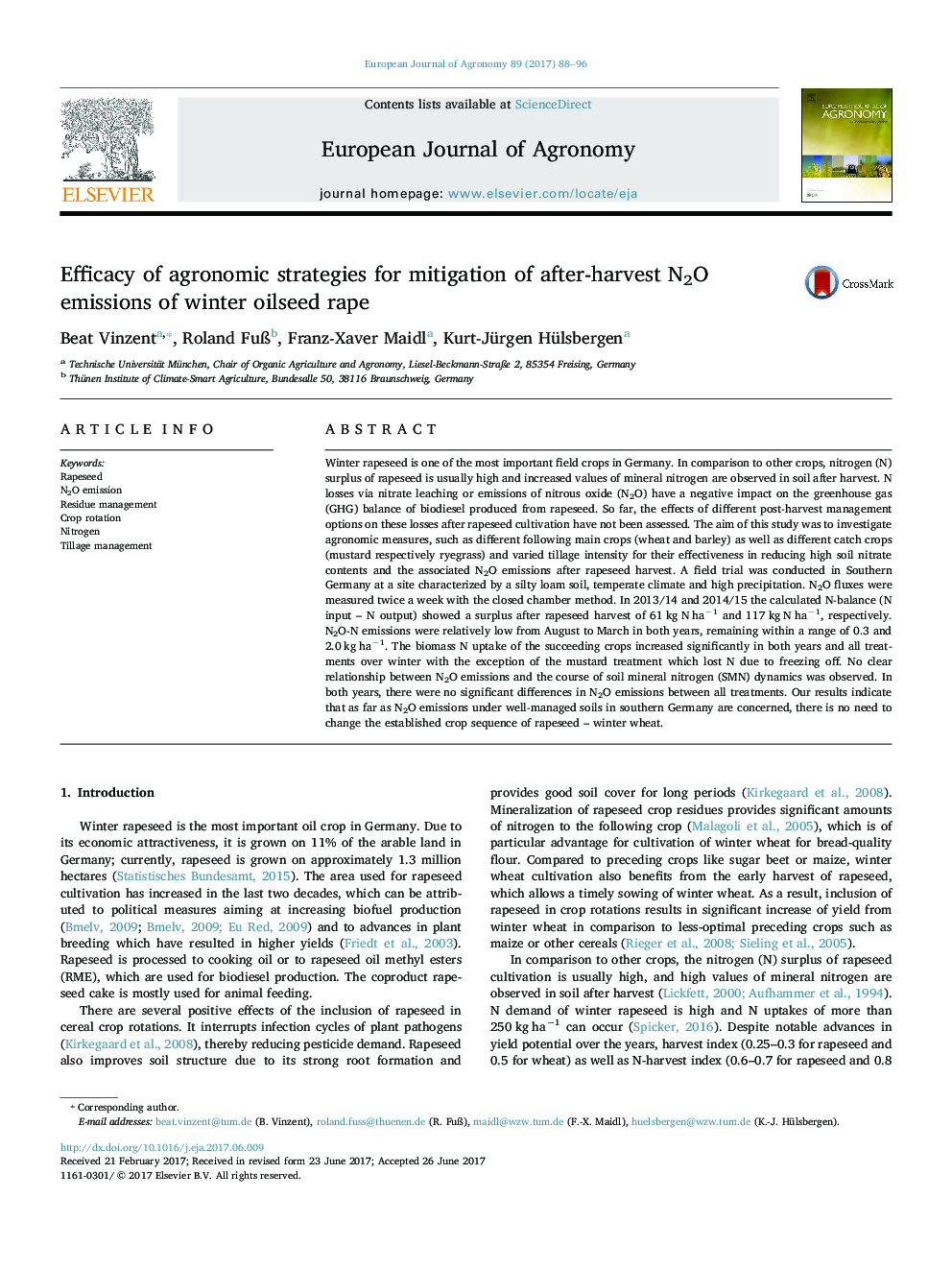| کد مقاله | کد نشریه | سال انتشار | مقاله انگلیسی | نسخه تمام متن |
|---|---|---|---|---|
| 5761223 | 1624435 | 2017 | 9 صفحه PDF | دانلود رایگان |
عنوان انگلیسی مقاله ISI
Efficacy of agronomic strategies for mitigation of after-harvest N2O emissions of winter oilseed rape
ترجمه فارسی عنوان
اثربخشی استراتژی های زراعی برای کاهش انتشار عناصر نیتروژن پس از برداشت از تجاوز به علف های هرز زمستانه
دانلود مقاله + سفارش ترجمه
دانلود مقاله ISI انگلیسی
رایگان برای ایرانیان
کلمات کلیدی
کلزا، انتشار نانومواد، مدیریت مانده، تناوب زراعی، نیتروژن، مدیریت خاکورزی،
موضوعات مرتبط
علوم زیستی و بیوفناوری
علوم کشاورزی و بیولوژیک
علوم زراعت و اصلاح نباتات
چکیده انگلیسی
Winter rapeseed is one of the most important field crops in Germany. In comparison to other crops, nitrogen (N) surplus of rapeseed is usually high and increased values of mineral nitrogen are observed in soil after harvest. N losses via nitrate leaching or emissions of nitrous oxide (N2O) have a negative impact on the greenhouse gas (GHG) balance of biodiesel produced from rapeseed. So far, the effects of different post-harvest management options on these losses after rapeseed cultivation have not been assessed. The aim of this study was to investigate agronomic measures, such as different following main crops (wheat and barley) as well as different catch crops (mustard respectively ryegrass) and varied tillage intensity for their effectiveness in reducing high soil nitrate contents and the associated N2O emissions after rapeseed harvest. A field trial was conducted in Southern Germany at a site characterized by a silty loam soil, temperate climate and high precipitation. N2O fluxes were measured twice a week with the closed chamber method. In 2013/14 and 2014/15 the calculated N-balance (N input - N output) showed a surplus after rapeseed harvest of 61 kg N haâ1 and 117 kg N haâ1, respectively. N2O-N emissions were relatively low from August to March in both years, remaining within a range of 0.3 and 2.0 kg haâ1. The biomass N uptake of the succeeding crops increased significantly in both years and all treatments over winter with the exception of the mustard treatment which lost N due to freezing off. No clear relationship between N2O emissions and the course of soil mineral nitrogen (SMN) dynamics was observed. In both years, there were no significant differences in N2O emissions between all treatments. Our results indicate that as far as N2O emissions under well-managed soils in southern Germany are concerned, there is no need to change the established crop sequence of rapeseed - winter wheat.
ناشر
Database: Elsevier - ScienceDirect (ساینس دایرکت)
Journal: European Journal of Agronomy - Volume 89, September 2017, Pages 88-96
Journal: European Journal of Agronomy - Volume 89, September 2017, Pages 88-96
نویسندگان
Beat Vinzent, Roland FuÃ, Franz-Xaver Maidl, Kurt-Jürgen Hülsbergen,
